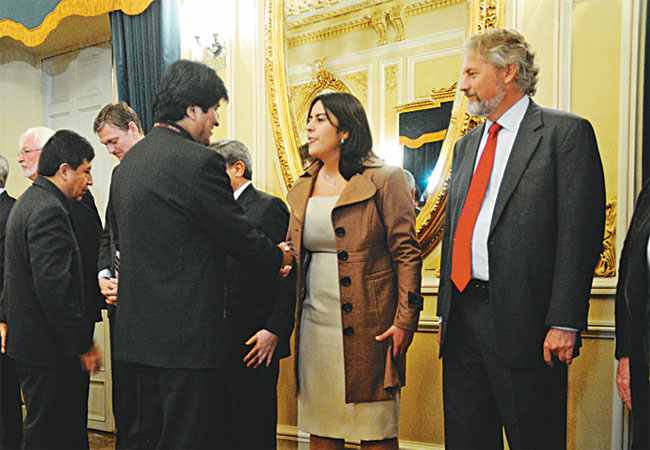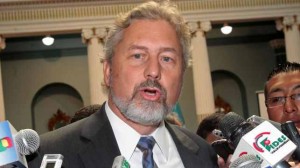
U.S. halts economic aid to Bolivia citing expulsion of USAID

The United States has halted all economic aid to Bolivia, because that country expelled representatives of the USAID last May, the Bolivian press reported.
USAID stands for U.S. Agency for International Development.
In 2006, when President Evo Morales took office, that aid amounted to about $40 million a year for programs of health care, environmental protection and economic development. That amount has since declined.

“Our economic support has always been delivered through the USAID, and, at the request of the Bolivian government, that agency no longer functions here, so economic support is no longer an issue between the two countries,” said Larry Memmott, U.S. chargé d’affaires in La Paz, interviewed by the radio station Fides on Thursday (Jan. 30).
Bolivia expelled the USAID on Sept. 30, 2013, almost five months after Morales accused that agency of having funded nongovernment organizations (NGOs) and opposition groups. The USAID established its presence in Bolivia in 1964.
President Evo Morales on Friday said that Bolivia “does not need charity” and pointed out that the U.S. had vowed to contribute to Bolivia’s fight against drug trafficking, according to the Bolivian press.
“If we talk about the struggle against drug trafficking, because of international agreements, [the U.S.] has the obligation, within its shared responsibility to contribute to the struggle against drug trafficking. That’s not aid,” he said.
In any case, Morales said, 80 percent of the United States’ money returned to the U.S. in the form of Bolivian contracts for business enterprises and consulting services, “so what aid are we talking about?”
“If we review the data, the latest data, I believe it comes to 20 or 25 [million dollars], practically nothing,” he said at a press conference in the presidential palace.
Presidential chief of staff Juan Ramón Quintana told the press that USAID contributions amount at present to $23 million.
“We want to tell [the United States], with much pride, that we’re not a mendicant state, we are not beggars, we don’t need charity, we have pride and we’re going to finance the struggle against drug trafficking ourselves,” Morales said late Saturday, during a public appearance in the town of Bermejo.
The announcement was made in La Paz by a chargé d’affaires because the United States does not have an ambassador in Bolivia. In September 2008, Morales ordered the expulsion of Ambassador Philip Goldberg, accusing him of conspiring with an opposition group in Santa Cruz Province.
The U.S. State Department denied the accusation but retaliated by expelling the Bolivian ambassador, Gustavo Guzmán. Two months later, Morales ousted the functionaries of the U.S. Drug Enforcement Administration.
Bolivia’s top representative in Washington today is Gen. Freddy Bersatti, identified by the Bolivian government as “chief of mission.”
The suspension of economic aid represents another crack in U.S.-Bolivia relations, which have not been improved by Morales’ rapprochement to left-leaning nations like Cuba, Venezuela and Ecuador.
Morales this week attended the summit in Havana of CELAC, the Community of Latin American and Caribbean States, a regional association that does not include the U.S. or Canada.

